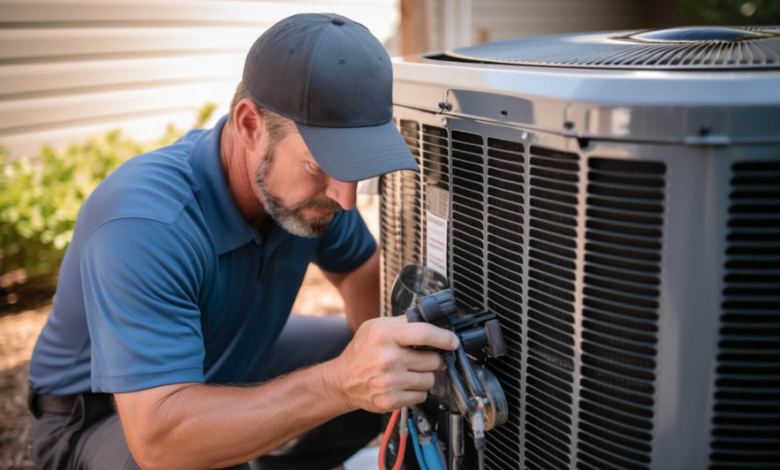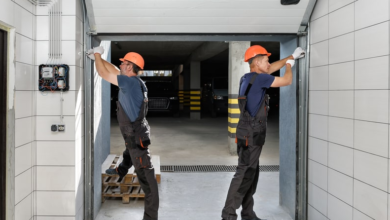4 Signs Your AC Needs a Tune-Up: A Homeowner’s Guide

As summer approaches, the reliability of your home’s air conditioning system becomes a top priority. A well-functioning AC unit is more than just a convenience; it’s essential for maintaining a comfortable and healthy living environment. However, many homeowners wait until their system breaks down completely before seeking professional help. Recognizing the early warning signs of a failing AC can save you from the discomfort of a sweltering home and the expense of major repairs. This guide explores four key indicators that your cooling system needs attention from a qualified technician, helping you ensure it runs efficiently all season long.
1. Your Energy Bills Are Unexpectedly High
One of the most subtle yet significant signs of an AC problem is a sudden spike in your electricity bills. Your air conditioner is one of the largest energy consumers in your home, and when it isn’t running efficiently, its energy consumption can skyrocket. This inefficiency can be caused by various issues, such as a refrigerant leak, a clogged air filter, or aging components that force the system to work harder to cool your home.
According to the U.S. Department of Energy, heating and cooling account for about 48% of the energy use in a typical U.S. home. If your bills are climbing without a corresponding increase in usage, it’s a clear signal that your AC’s performance has declined. Don’t ignore this warning sign. Scheduling a professional inspection can identify the root cause, whether it’s a simple fix like cleaning the coils or a more complex issue. Addressing it promptly not only lowers your energy costs but also prevents further strain on your system.
See also: Smart Homes, Safer Living: Security System Installation in Melbourne
2. The Airflow is Weak or Inconsistent
Do you notice that some rooms in your house are much warmer than others? Or perhaps the air coming from your vents feels weak and barely circulates? Inconsistent cooling and poor airflow are common symptoms of an AC in distress. These issues often point to problems within your ductwork or with the unit’s compressor. A blocked or leaking duct can prevent cooled air from reaching its destination, leading to uneven temperatures throughout your home.
Similarly, a failing compressor can struggle to circulate refrigerant, resulting in weak airflow. This could also be a symptom of a clogged air filter, which restricts air from entering the system in the first place. Changing your filter is a good first step, but if the problem persists, it’s time to call in a professional. An expert can diagnose whether the issue lies with the duct system, the compressor, or another component, ensuring every room in your home receives the cool air it needs.
3. The Unit is Making Strange Noises
Your air conditioner should operate at a relatively low hum. If you start hearing unusual sounds, it’s a clear indication that something is wrong. Different noises can point to specific problems, and ignoring them can lead to catastrophic system failure. For instance:
- Banging or Clanking: This often suggests a loose or broken part, such as a connecting rod, piston pin, or crankshaft inside the compressor. It could also mean the indoor blower is unbalanced.
- Squealing or Screeching: High-pitched squealing can indicate an issue with the belt connecting the motor to the blower or problems with the fan motor bearings.
- Grinding: A grinding sound may signal that the motor’s bearings are worn out. If not addressed, this can cause the motor to burn out completely.
- Clicking: Frequent clicking sounds during startup or shutdown can be a normal part of operation, but constant clicking may indicate a faulty thermostat or an electrical control issue.
These sounds are your AC’s way of crying for help. Turning off the unit and seeking professional air conditioning repair in Herriman can prevent a minor issue from turning into an expensive replacement.
4. There’s Excess Moisture or Leaking
While some condensation is normal for an air conditioning unit, excessive moisture or active leaks are definite red flags. If you notice water pooling around your indoor unit, it could be due to a clogged condensate drain line. This line is responsible for carrying condensation away from your home, but over time it can become blocked with dirt, algae, or mold, causing water to back up and overflow.
A water leak can not only cause significant damage to your home, including walls, ceilings, and flooring, but it can also create a breeding ground for mold and mildew, posing a health risk to your family. In other cases, a leak might be refrigerant, which is a more serious issue. A refrigerant leak not only impairs your AC’s cooling ability but is also harmful to the environment. If you see any unusual moisture, it’s crucial to have a technician inspect the system to identify the source and resolve it quickly.
By paying attention to these warning signs, you can address potential AC issues before they escalate, ensuring your home remains a cool sanctuary throughout the hot summer months. Regular maintenance and timely repairs are the keys to a long-lasting and efficient cooling system.



